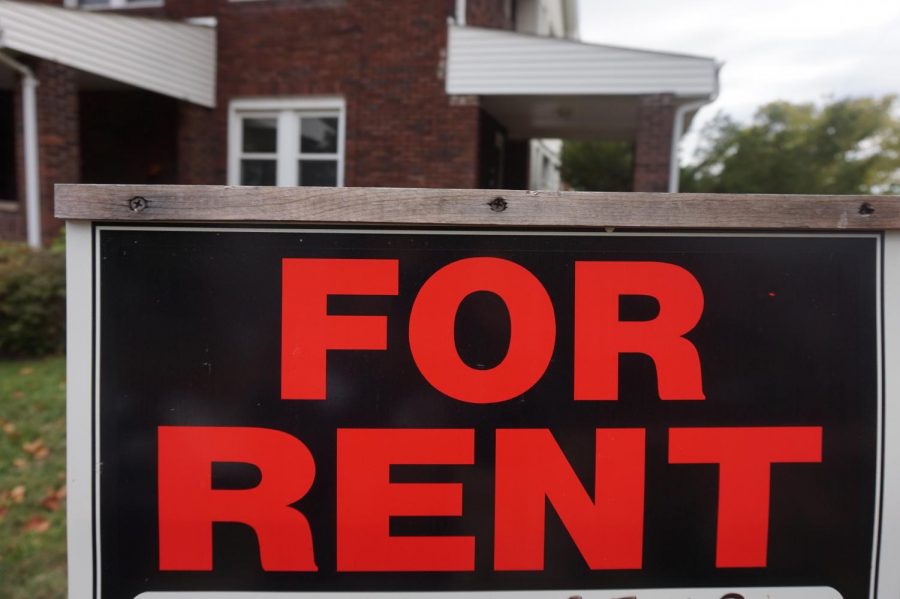Editorial | Pennsylvania must provide equitable rent relief now
Dalia Maeroff | Senior Staff Photographer
The Pennsylvania CARES Rent Relief Program had a maximum of $150 million to give to renters across Pennsylvania, but only $54 million was distributed to renters.
February 8, 2021
The Pennsylvania CARES Rent Relief Program was a statewide effort to provide rent relief to those most in need of assistance paying rent and those most at risk of being evicted. The application window closed on Nov. 4, 2020, and the deadline to distribute aid was Nov. 30, 2020.
The program had a maximum of $150 million to give to renters across Pennsylvania. Reportedly, tenants and landlords applied for $169 million in aid, exceeding the limit for the program. But only $54 million was distributed to renters, amounting to less than half of the allotted federal amount. The reasons for the failure to distribute rent relief vary. Some say that the caps on how much money renters could receive was an issue, while legislators say the requirements were too strict on landlords.
In reality, both of these were likely factors that limited the impact of the first rent relief effort. The good news is that the state government has a chance to make amends with Pennsylvanians through an upcoming round of rent relief that stems from Gov. Tom Wolf and state legislators approving a pandemic aid package totalling more than $900 million. The state needs to ensure that the upcoming round of rent relief funds are distributed equitably to those who need them in order to prevent people from being evicted or becoming homeless.
The upcoming rent relief, amounting to $570 million in Pennsylvania, does not have a set distribution timeline, but likely won’t be available until March. The funds must be spent by Sept. 30, and anything that isn’t spent will be returned to the federal government. Pennsylvania needs to take action now to ensure that this money is dispersed widely and evenly to those who need it.
One of the major issues with the first round of rent relief was the amount of bureaucratic work needed to apply for and receive aid — in most cases, both renters and their landlords had to submit paperwork to receive funding, and they had to earn below a given income threshold.
An additional barrier exists for people who rent off the books, as they don’t have a formal lease or other documents. Elizabeth Ananat, an economics professor at Barnard College, told The New York Times that this is one of the main obstacles for many renters.
“Our systems are built around these middle-class models where everybody has documentation for everything,” Ananat said. “Much of the world doesn’t work that way, but most of the people who write laws live in the world that works that way.”
Pennsylvania should make rent relief available to individuals in situations like these because they are more at risk of becoming homeless. When there isn’t any formalized lease, there is little to no guarantee that a nontraditional tenant won’t be “evicted” — or, in this case, simply kicked out, as there isn’t a binding lease to warrant an eviction. Making it easier to apply for rent relief could help these individuals avoid displacement.
California recently passed a bill that helps people in situations like these. The bill allows for tenants to apply for rent relief using documents like bills and school registrations, rather than a formal lease. This makes rent relief accessible to people who are in unconventional situations, and can help protect them from becoming homeless.
In an effort to help prevent people from becoming homeless due to eviction, President Joe Biden extended the federal moratorium on eviction until March 31. Unfortunately, this motion doesn’t do too much to prevent evictions, as it only applies to tenants who are at risk of eviction due to outstanding rent payments. It does nothing to prevent a landlord from evicting someone for other reasons.
The issues with housing and evictions in Pennsylvania have existed for a long time before the pandemic began, and they will certainly exist after it ends. The least state legislators can do right now is to do everything in their power to prevent the housing crisis from getting worse.



